 Today we are beginning a new series on life and death, in which we’ll consider abortion, suicide, euthanasia, and capital punishment. Our goal is to address each topic from a biblical framework in order to arrive at a Christian position. At the outset, I’ll admit that we don’t know everything and could be wrong, so we appreciate your engagement in helping us arrive at a godly position.
Today we are beginning a new series on life and death, in which we’ll consider abortion, suicide, euthanasia, and capital punishment. Our goal is to address each topic from a biblical framework in order to arrive at a Christian position. At the outset, I’ll admit that we don’t know everything and could be wrong, so we appreciate your engagement in helping us arrive at a godly position.
Today we’ll focus on abortion and consider whether it’s ever right for a Christian to have an abortion. We’ll cover the scriptures that relate to this topic, the track record of early Christianity, and how this relates to our own time. We discuss the major objections and consider the toughest cases like rape, incest, and when the mothers’ life is in danger.
Please note that some of what we discuss here is probably inappropriate for children.
—— Links ——
- Check out the other episodes in the series on Killing
- For more on Wendy Savage and her interlocutor, Hayood Robinson, check out this Unbelievable episode
- Intro music: “Protofunk” by Kevin MacLeod. Licensed under Creative Commons: By Attribution 3.0 License.

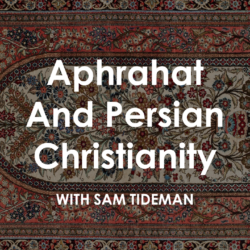
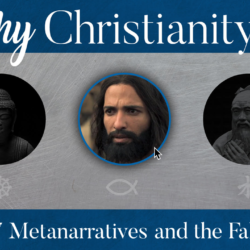
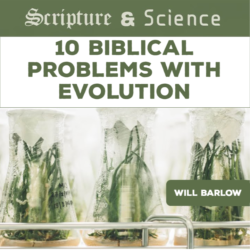
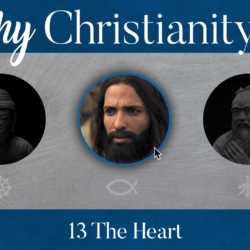
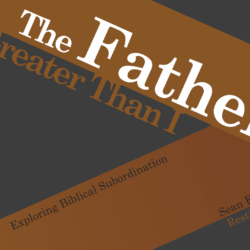
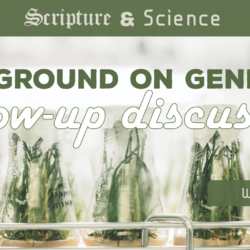
Sean, thank you for tackling this subject. I know that the very emotional topic of the life of the mother comes up very early in any conversation re: abortion. I found the words of former Surgeon General of the U.S. to be profound: “Protection of the life of the mother as an excuse for an abortion is a smoke screen. In my thirty-six years in pediatric surgery I have never known of one instance where the child had to be aborted to save the mother’s life.” Former abortionist Dr. Anthony Levatino similarly says that none of the abortions he performed to “save the life of the mother” were actually necessary.
Also enlightening is this comment from a rape victim: “I got over the rape; I never got over the abortion.”
Re: protestors outside abortion clinics – many of those present are simply engaged in a prayer vigil and there are frequent testimonies such as this one: this little girl is alive today because pro-life people were outside the abortion clinic. Abortion workers in those clinics have also testified that they were moved to quit their jobs due to the prayer warriors outside. And what a difference it makes when some of those praying and protesting are men!
It seems that abortion is never necessary to save a woman’s life; what it does is to preserve the lifestyle of the mother. The actual result of an abortion is that the mother has now become the mother of a dead baby. Can our moral senses survive if we accept this?
Rape is a crime, but the baby is innocent and deserves to live, and to be loved and cared for the same as any other baby.
People must learn to be unselfish.
Sean. Remember our bodies recover from pregnancy. An aborted baby’s body never recovers. Pregnancy is a natural consequence of sexual activity. That is where the “what a woman does with her body” argument is the most logical not after there are two bodies to consider in the abortion discussion.
Rape pregnancy is rare which is what abortion should be. And by the way, laws keep me from running red lights and crashing into others and possibly causing harm and death. So laws do work.
Hello Sean, I enjoyed the passionate discussion between you and your guests on the subject of “Killing the unborn, a Christian view of abortion”.
You asked for some feedback so I have responded with some of my thoughts. Volumes could be written on the subject, but I will limit my responses to what I considered the main points in the discussion, that stood out to me. Sean, you, and anyone else reading this, should not try to conclude from the following what my Christian understanding of abortion is. The subject is too vast and there are so many variables, that volumes could be and have been written from a Christian perspective, to think there is a simple prescription to every circumstance, a formula or a succinct answer, to a dilemma many are often faced with.
Firstly I will present what I consider an over view of the arguments put forth and then point by point give a summary of the arguments presented as I see them, and just highlight what I think are some weaknesses around the arguments presented in the podcast. Hope I don’t bore you but here goes as follows. And I probably will raise more questions than provide answers, including questions around my sanity and Christian values! But I will try to pull it together in the end.
Over view. I think, considering the subject matter, predicating the discussion with the goal of arriving at, as you put it, a bible based Christian position, immediately flagged to me the discussion could be shunted into a legalistic side line with no barrier for endless conjecture, argument and counter argument at the end. I do not believe on this subject, one can arrive at a position. A one size fits all regarding everything that needs to be considered, and that could affect the final decision a Christian could make if found in this particular dilemma.
Point 1. Referring from the Mosaic Law.
With regard to the starting point for the discussion scripture found at Exodus 21:22 was used as a basis to make a point. As we know, Christians are no longer under the Mosaic Law. We are now under the Law of the Christ, the Kingly Law of love. As such we cannot refer back to the Mosaic Law as an authority and enjoin this to Christians today with regard to certain matters. Particularly as candidly admitted by you, the verses do not directly address the matter being considered. That of causing an intentional termination of an unborn baby. An abortion. Often times the Mosaic Law is referenced to provide veracity to a point one is trying to make. This at times can be because of not having the authority of sufficient scriptural support, and the desire to find an easy solution to very perplexing questions for Christians today. Because of the reasons above and others, often times the Mosaic Law is appealed to. Instances are referred to where a command that has been disobeyed or where there is an infraction of the Law, God commands a harsh penalty. Such as in, Exodus 21:22. The guilty man should be put to death! On the surface we may seem to have here a very good basis for Gods thoughts on the matter, and a solution as to how Christians should view abortion. This is specious reasoning, as there are many other scriptures with commands that are of equal or greater importance that do not follow with a command that the one disobeying should be put to death! When Jesus was asked what the greatest command is, the response was Love God and your neighbour. There are numerous laws in the Mosaic Law, some followed by harsh punishment and others not so. How can we determine from our stand point the degree of importance that God places on these Laws, simply by the punishment determined by God for the time and circumstances it was given. The people that it was given too, and the reasons why? A quick read of the 10 Commandments will demonstrate that, punishment fitting the crime, or more to the point, as not always having a punishment following a command. Harsh punishment prescribed in itself does not constitute some extra authority to bear on conclusions for Christians today. Associated punishment for infractions of the Mosaic Law is not a formula for definitively, or on a sliding scale, deciding Gods thoughts on matters for Christians today.
In any case there may even be a contradiction in thought here too. If a man under the Mosaic Law should be put to death because of causing a death of an unborn child, does this mean Christians today are authorised to terminate the lives of evil-doers? Some obviously do and seek to kill surgeons who perform abortions!
Point 2. Making inferences from the scriptures
Furthermore, caution and restraint must be exercised when there is any attempt to make an inference from the Mosaic Law scriptures, or any scripture new or old testament, and present it as applicable to a present day Christian. Especially when the matter being considered is of such importance as life and death. The Pharisees, showed no such restraint as self-appointed experts on making inferences from the scriptures. But in the final analysis Jesus denounced their conclusions as not having Gods approval or reflecting Gods thoughts on matters of the greatest importance. In many aspects of life the scriptures are silent. And where this is the case a Christian must tread carefully and not be dogmatic, or judge others who conclude differently.
Point 3. Isolating scriptures, discussing one thing, and expanding on them, and applying them to another subject.
Scripture was referred to from Psalms 139:13-14. This was used to prove that God considers life of a person starts at conception. The context however, refers to God knowing us comprehensively. Verse 4 says God knows what we will say before we say it. What are the ramifications of this? Are we to conclude Psalm 139 is a biology lesson and a lesson in pre-destination or just that we can be comforted in that God is very well acquainted with us! Sometimes the bible touches on other matters of life other than the salvation of man, and it is always accurate. Yet if we are to take the versus 13-14 as presented in the podcast, then a baby that is being formed without a brain, as suggested by Sean, or legs and arms or is so seriously compromised physically and mentally that it will survive and continue to live for some considerable time, after birth, but only survive under intensive care and exist in a vegetative state. Is this too the work of God’s hands? I would much rather conclude this is the work sinful man and the work of the Devil!
Point 4. Making strong bold declarations as proof that we have scriptural or other basis for a certain course of action as being the only right and correct one.
We all are encouraged by the personal resolve of others around us. And it is commendable when a Christian is moved by their love of God to do so. The example of other Christians can exert a huge influence for good on us especially when we are faced with trials. Yet merely declaring what we might do doggedly under huge pressure is not in itself proof that we have Gods thoughts on the matter, or that we are doing what God would want us to do. Or that it is the right course to follow. Maybe it is for us but not necessarily for others too. Apostle Peter adamant and boldly declared that when faced with the pressure to abandon Jesus; in his hour of trial though all the others would he would not. We all know how that story ended.
Conclusion.
Sean, as I have already mentioned the scriptures are often silent on matters that are of the utmost importance. Abortion being one of them. I believe though, that there is no problem in life that we cannot solve using Gods word. However on this subject there is no comprehensive teaching, or directives that can be found in the bible. And we can only search the scriptures for principles that we could think about to come to a decision. Others may disagree. Yet we are a free people and we must use our God given bible trained conscience and be guided by Gods Holy Spirit to arrive at a conclusion that may be the right one for us, but may not be for someone else. Think of some of the decisions some Christians make in different scenarios as follows and whether you would agree with them?
Out there are numerous ideas about when human life starts, including some major churches’ view for example that condoms are a sin because it shows a disregard for life as in the sperm of a man is where life begins. We could cite a reference here from the Mosaic Law from Deuteronomy where if women crushed the testicles of a man in a struggle resulting in him not being able to procreate, she should be severely punished! Yep here we have it again severe punishment! So if you like, from inference, God says, life starts here! Frozen embryos are life. Is it a sin to store, dispose of them, is it a sin to keep them frozen etc for perpetuity? Are the women and men who desperately want children and are prepared to sacrifice nearly everything they own to conceive using IVF showing a disregard for life. Men are criticized for having surgery to permanently stop them from reproducing. This is after having three or more children. The Mosaic Law has plenty to say on this one too! The criticism is often from celibate ones serving the lord who have not used the procreative powers they are gifted with to have children at all. Are the mothers in those terrible high rise apartment fires in England, who under extreme pressure with the roaring flames licking at them and their children murderers? Because in the desperate circumstance tossed their children over the balcony to “save” them from the fire? Would anyone suggest they should have done so differently, would we like to counsel such ones from the scriptures for the course they took, or condemn them as the most vile of wicked mothers? Afterwards mothers jumping to their own death to escape the flames, are they too murderers taking their own life? I would bet mostly these mothers in other circumstances would take a bullet for their kids, and good mothers do sacrifice their own lives every day in smaller ways for the ultimate good of their children. I think those mothers in England in that fire disaster would be such mothers. I know many slack mums who couldn’t care less about mother craft and their only claim to motherhood is giving birth to numerous kids they couldn’t care less about. Taking drugs drinking alcohol and engaging in other activities during pregnancy, that result in children being born that are devastated both physically and mentally during life and resulting in their’ early death. Do these mothers have the right view of life compared to the following mothers. I also know of mothers who were faced with the dilemma of their own imminent death or the death of their’ unborn child. They chose, not for selfish reasons the latter. The demonstration of their love for subsequent children and their husbands under better circumstances and the love thy showed for God and neighbour in their life is exemplary. I do not think the arguments you put forward in the podcast could condemn these mums or others in different circumstances for doing the wrong thing.
Anything a Christian does that is not in good conscience is a sin. We are under the Kingly Law of Love. Faith and love. God looks just as much at our motive for doing or not doing something as what we actually do. We must act in faith and consider always the loving thing to do. What one person does may be diametrically opposed to what another does. We all stand before our judge; God who will read our hearts and judge us accordingly. In the final analysis I think life is sacred. I also think there is no one answer to all situations for all people as to what they should or should not do. I do also think a good understanding of the mind of Christ will give us the mind of God on matters and how we use our conscience is something we alone will have to answer for. I see no room for those who for personal convenience terminate a life.
Good luck Sean, looking forward to your next instalments, and any “position” you can come up with!
I have enjoyed this series. Thank you for taking the time to get together and do this.
On this point, however, I am co fused as to one of your panelist’s positions. In the lesson capital punishment, there is a declaration that IF policy-making allowed us as individuals to cast our votes in favor or against, the panelist would be “against” and vote accordingly. Yet, in this discussion, the panelist states that he would never intervene in a public policy sense to tell “a woman what she can and cannot do with her body.” If the act of what she does is murder, which we all acknowledge, then these policy positions seem conflicted. Why would this panelist intervene politically against capital punishment and not “killing of the unborn”?